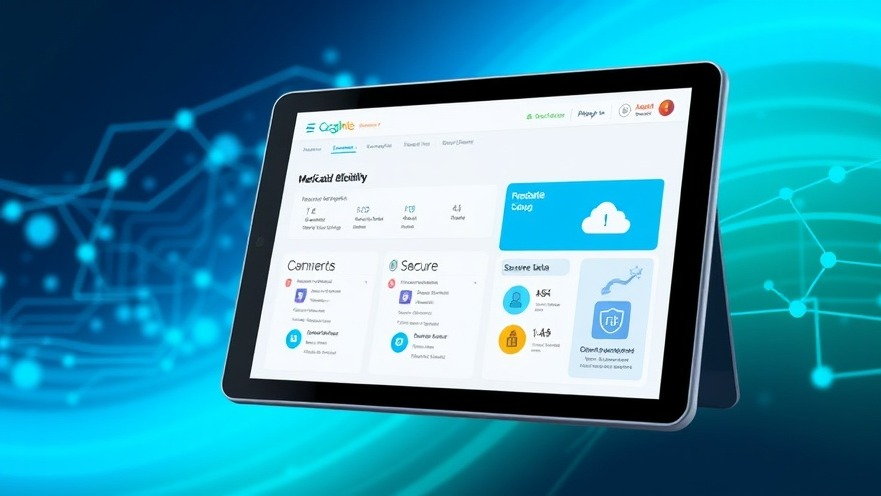
Understanding the Future of Medicaid Through Digitization
The discussion surrounding the 'Big Beautiful Bill' presents not only challenges but significant opportunities for managed care organizations (MCOs) and healthcare practitioners. As the Senate Finance Committee proposes major changes to Medicaid eligibility and funding, concerted efforts toward digitization can mitigate potential adverse effects. With estimates from the Congressional Budget Office suggesting as many as 7.8 million individuals could lose coverage, the landscape of care delivery for vulnerable populations is at a critical juncture.
Digitization as a Solution to Complex Challenges
While the bill poses daunting questions about eligibility requirements and regulatory shifts, digitizing workflows for eligibility checks, care coordination, and referrals can streamline processes and shield community providers from escalated administrative burdens. The introduction of stringent work requirements mandates increased verification from states—a responsibility that will significantly impact MCOs as they strive to maintain service quality against a backdrop of limited funding.
Community Engagement: New Administrative Realities
The new bill outlines specific community engagement requirements for adults receiving Medicaid, compelling beneficiaries to provide proof of participation in employment or relevant activities. The need for MCOs to adopt new verification processes could strain resources and complicate member interactions. As community networks become fundamental, firms should integrate technology that can automate these verifications and reduce manual entry errors.
Addressing the Consent for Care: Member Engagement Strategies
For concierge health practitioners particularly, understanding how to engage members proactively is vital. MCOs can leverage existing technological infrastructures and digital communication channels to guide members through these new requirements effectively. Establishing connections with local employment and volunteer programs will not only help members meet their engagement quotas but also foster stronger community relationships. By adopting comprehensive member engagement strategies, practices can enhance their reputation and trust within the communities they serve.
Possible Impediments and What They Mean for Practices
Potential obstacles include increasing member turnover and enrollment instability stemming from the monthly verification requirements. MCOs must prepare to navigate these risks by developing systems that inform members of compliance updates and closely track engagement. This approach not only safeguards healthcare delivery continuity but also enhances the overall member experience. MCOs should consider investing in IT solutions that support real-time data analysis to better predict enrollment patterns and financial forecasts.
The Importance of Proactivity: Getting Ahead of Changes
Fortifying existing community partnerships is paramount for MCOs aiming to alleviate the impact of evolving regulations. Predetermined outreach to employment and training programs can bolster reporting efforts while supporting beneficiaries in maintaining their coverage. The proactive mapping of community resources ensures that MCOs remain a viable source of guidance for those navigating compliance challenges. Establishing this network now prepares these organizations for upcoming shifts in policy.
As a conclusion, while uncertainties loom regarding the final form of the 'Big Beautiful Bill', embracing digitization remains a critical strategy for MCOs. By streamlining eligibility and care delivery processes, organizations can not only safeguard their operational integrity but also enhance service delivery and community trust.
 Add Row
Add Row  Add
Add 




Write A Comment